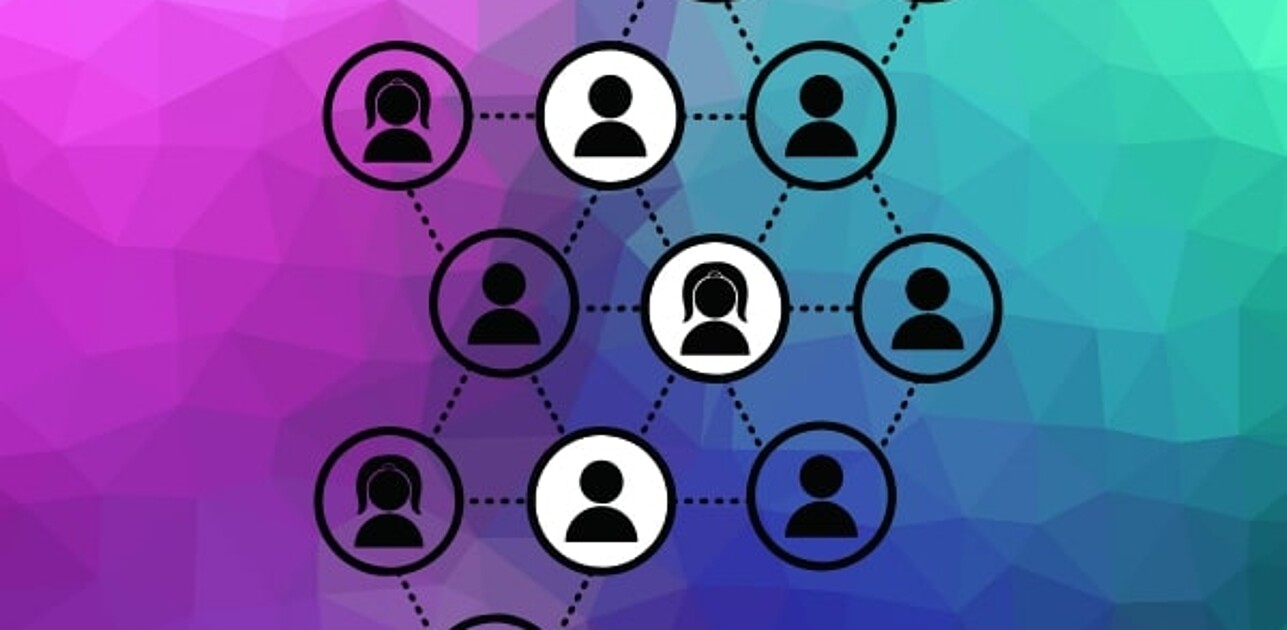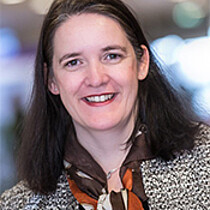

Article: Thursday, 21 November 2019
Do you wonder why some employees get on well with their colleagues and others do not? PhD researcher Evgenia Dolgova’s research at Rotterdam School of Management, Erasmus University (RSM), investigates what this means for managers and teams in terms of fostering collaboration and resolving conflicts. She also has advice for women and people who employ women. Evgenia’s PhD research, On Getting Along and Getting Ahead: How Personality Affects Social Network Dynamics, presents two studies that advance understanding of friendship within organisations. She gathered her data for the two studies from marching bands and teams working on strategy.
Evgenia sees collaborative relationships as important for employees to realise their full potential, so she zooms in on how people form relationships at work and what they think about each other’s competences. Her research emphasises how individuals and their relationships matter for the organisation’s performance. These two studies came out of collaborative work too: the first with research colleagues Dr Zuzana Sasovova of the Vrije Universiteit Amsterdam, and Prof. Michaéla Schippers of RSM; and the second with Dr Olga Kornienko from George Mason University, Washington DC, and with Prof. Ajay Mehra from the University of Kentucky.
Both studies make three important contributions to the study of organisations. First, they specify processes and mechanisms through which personality affects the dynamics of social networks and study how individual actions shape social structures. Second, both studies address how two types of networks mutually influence each other – this means perceptions of competence and friendship, as well as friendship and conflict – explaining on how multiplex networks evolve. Finally, Evgenia’s research aims to distinguish the forces shaping the formation of networks.
The first study zoomed in on how people build relationships in teams and tested whether proactive individuals appear more competent to their team members. It used data from 650 participants in 130 teams over 10 weeks; each participant filled a survey three times during this period. Participants were asked how competent they thought their team mates were and indicated whether they were friends with their team mates.

The researchers wanted to unravel why proactive individuals were able to obtain better organisational outcomes through networking. How do people with proactive personalities – a tendency to want to change their environment – influence perceptions of competence and friendship in teams? It turns out that proactive people know how to use the peoples’ tendency to befriend competent others: they recognise actual team members’ competence better than others, and also appear competent to their own team members. Moreover, people tend to attribute higher competence to their friends. This creates a self-reinforcing loop in which people select competent people as friends, and attribute higher competence to their friends – and proactive people leverage on that.
“The results also help us to understand how proactive people use this process: they are better able to recognise actual competence and appear competent to their own team members,” said Evgenia. “This study contributes to our understanding of how networks evolve within organisations, based on personality and interpersonal perceptions. Results demonstrate that team members co-create their social network positions: proactive individuals convey a competent image that their teammates choose to follow by developing friendships.” These results help us understand the processes of how proactive people could help organisations that value innovation and change.
Nevertheless, these results also call for caution: organisations need to carefully design their performance appraisal practices, taking this loop between friendship and competence into account. To avoid nepotism, managers need to be aware of their biases, and such awareness of bias would help to avoid subjectivity in performance assessment criteria.
Another story emerged from Evgenia’s data: it appears that the competence of female team members is constantly underestimated, both by women and men. “What’s more, these gender biases perpetuate career disparities between women and men. When proactiveness forms a cornerstone of competence assessment, women might be disadvantaged because they have been socialised to refrain from proactive agentic behaviour. Managers and team members should be aware of this bias when taking crucial decisions,” Evgenia commented. “One way to do so would be emphasise the competence of your female colleagues where appropriate.”
The second study explored the processes of how the five-factor model of personality contributes to friendship and conflict dynamics in a marching band – particularly how friendship and conflict mutually influence each other. The five traits are extraversion, agreeableness, neuroticism (also called emotional stability), conscientiousness, and openness to experience. Extraversion and neuroticism mark how people experience positive and negative emotions, whereas conscientiousness and agreeableness mark successful self-regulation that affects how people interact with each other in social situations. Together, these abilities to experience, express, and regulate emotions shape relationships. Openness to experience captures the original thinking patterns in individuals. The individuals scoring high on openness to experience are original, curious, and have a broad range of interests; those who score low are usually down-to-earth, conforming, and traditional.
For this study, 193 members of a marching band answered questions about their friendships and conflicted relationships at the start and the end of the marching band season. The marching band is a gender-balanced and racially diverse organisation. The authors suggested and tested a range of ways through which personality could influence the way people relate to each other, and explored the interplay between friendship and conflict.
The analysis revealed that personality contributes to the formation of friendships and conflicts in different ways.
For example, people prefer to befriend extraverts (mechanism of aspiration): extraverts are energetic, create a positive social atmosphere and generally enjoy life. However, the authors found that extraverts could also reach their limits in terms of the number of people they could spend time with, and at a certain level start selecting others with similar levels of extraversion.
The analysis also indicated that over time, band members aspired to befriend emotionally unstable individuals. In other words, people who experience negative and volatile emotions remained attractive friends. While we might find this counterintuitive, previous research showed that over time people tend to underestimate emotionally volatile individuals and learn to view and appreciate their contributions more.
What about individuals open to experience – people who display originality and creativity in their thinking? Those are fun people to be around, right? It turns out that although open individuals withdrew from conflicted relationships, they did not win many friends: band members avoided open individuals as friends. Band members tended to get into conflict with highly conservative and traditional individuals and with very original and creative individuals.
The authors speculate that open individuals might annoy others with their non-conventional ideas. They recommend working on inclusive climates within organisations to foster innovation and creativity. ‘Dancing out of tune’ might turn out to be helpful if your organisation needs to find new ways to conduct its business.
The authors also found that conflict within groups spreads through friendship, which helps the understanding of how groups divide. They found that over time, people ‘adopt’ the enemies of their friends. This offers new ways for conflict mediation: to reconcile conflicting parties, managers need to keep these friends in mind. “To reduce the amount of conflict and the perception of there being ‘enemies’ in an organisation, colleagues should watch out that they don’t simply adopt their friends’ opinions against other colleagues,” advises Evgenia. The process of making enemies of friends’ enemies seems innocuous; perhaps friends agree easily about another colleague being ‘difficult to get along with’ or collaborate with. Awareness of this bias, and acknowledging or understanding why this colleagues seems difficult – perhaps because of frustration or stress – makes it easier to perceive such colleagues as less difficult.
The message to managers is to watch out for the self-reinforcing loop between perceptions of competence and friendship that could foster favouritism. For example, a manager might be more likely to promote a friend because they think this friend is competent. Managers should consider the social context of friendships within organisations – and make sure to use objective measures of competence – when they are mediating conflicts, or deciding who to promote. Also, managers could foster inclusive climates within their departments to create a thriving organisation.
For recruiters, Evgenia advises that there are many reasons for conflicts within teams and organisation so hiring only friends-of-friends is not a solution. To thrive in a diverse society, the key is to promote inclusion within the organisation and to be aware of the reinforcing nature of biases.
And for employees, the research indicates that to move up the social ladder, it helps to display proactive behaviour. “But also be aware that groups of friends and colleagues tend to divide themselves. Work on your friendships, but be careful not to adopt their enemies. Watch out that your friends’ enemies don’t also become your enemies,” says Evgenia.



Science Communication and Media Officer
Rotterdam School of Management, Erasmus University (RSM) is one of Europe’s top-ranked business schools. RSM provides ground-breaking research and education furthering excellence in all aspects of management and is based in the international port city of Rotterdam – a vital nexus of business, logistics and trade. RSM’s primary focus is on developing business leaders with international careers who can become a force for positive change by carrying their innovative mindset into a sustainable future. Our first-class range of bachelor, master, MBA, PhD and executive programmes encourage them to become to become critical, creative, caring and collaborative thinkers and doers.
